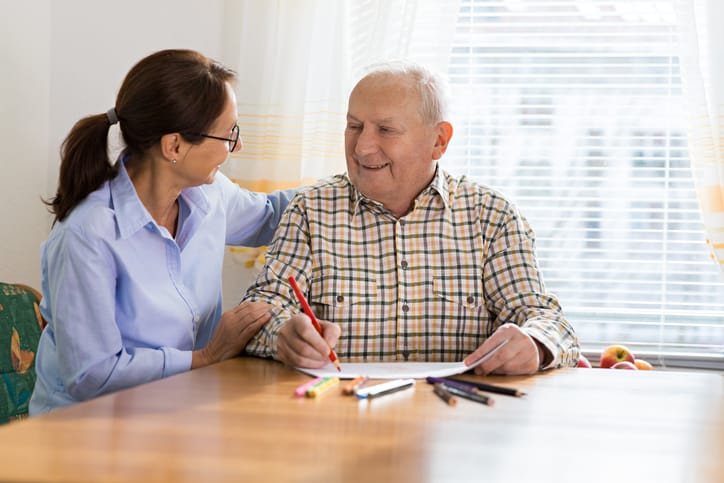
5 Signs My Parent Needs Inpatient Rehabilitation
How do you know when an elderly parent needs inpatient rehabilitation? It’s not always an easy decision, but the team at Santé is here to help. There are a few key signs to look for when caring for a loved one. Some situations are more obvious, but others may leave you feeling unsure about what to do.
Transitional rehabilitation, also known as post-acute care (PAC), gives a patient 24-hour care and assistance. A comfortable setting with a compassionate team like Santé is ideal for patients who don’t need to be at a hospital but aren’t able to function on their own at home. With services to assist with pain management and wound care, inpatient care is often necessary to make a full recovery.
-
Major fall resulting in injury
If an elderly parent has fallen at home, first make sure they get the emergency care they need. Then, assess if any injuries will prohibit them from performing daily activities. Common injuries from a fall include a fractured or broken hip or joint injury.
-
Neurological condition
Alzheimer’s disease is a common condition that may require inpatient rehabilitation. If a caregiver is no longer able to safely care for your loved one because of setbacks from a neurological condition, in-home rehabilitation may be the answer. Be sure to consult your parent’s doctors first.
-
An aneurysm or brain injury
After an aneurysm or brain injury, inpatient rehabilitation will provide necessary cognitive therapy. A brain injury can affect the whole body. Physical and occupational therapy services are necessary to ensure a patient has access to a continuum of care on their road to recovery.
-
Chronic disease
If your parent is living with a chronic condition, there may be periods of time when in-patient rehabilitation is needed. Treating symptoms and managing pain is often a 24-hour job that can be overwhelming for a caregiver.
-
Inability to perform daily tasks
Our rehabilitation center is well-equipped to help someone who is no longer able to perform daily activities. We believe in healing mind, body, and soul with a variety of treatments and therapies practiced by a compassionate team of nurses and caregivers.
From our Transitional Rehabilitation Centers to our Home Health services, Santé’s goal is to reshape the after-hospitalization care industry and revolutionize the way guests and patients heal their mind, body, and spirit. To learn more about the best options for post-acute care in Arizona, we invite you to discover the benefits we offer at Santé.



